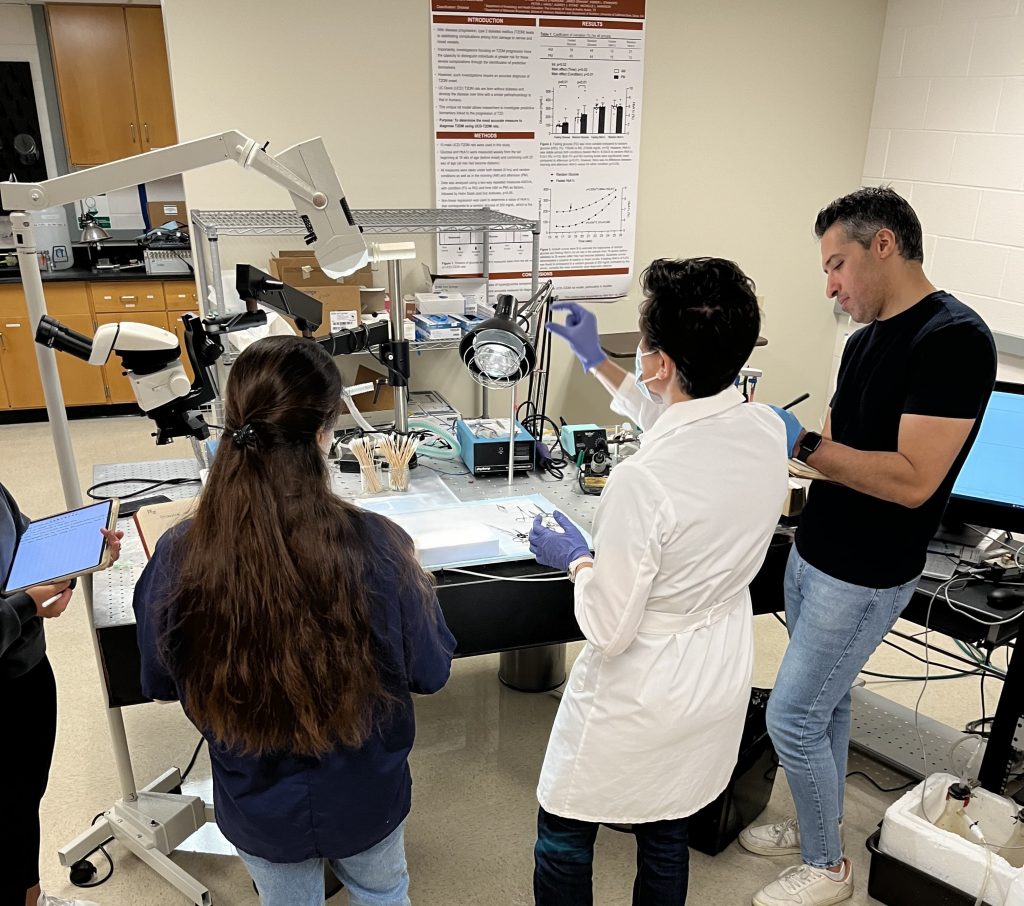The long-term goals of this lab were developed around the idea that “Exercise is Medicine,” and in order to prescribe exercise to individuals with any disease, we must first understand the acute cardiovascular responses to physical activity. These acute responses include exaggerated or reduced sympathetic responses to muscle contraction due, in part, to the exercise pressor reflex. The onset of exercise demands an increase in cardiac output and redistribution of blood flow to the working skeletal muscle. Our body meets these demands by decreasing parasympathetic activity, increasing sympathetic activity and thereby increasing heart rate and blood pressure. Exaggerated increases in sympathetic activity can lead to detrimental cardiac events. Whereas reduced sympathetic activity can lead to exercise intolerance. We focus on the effects of both type 1 and type 2 diabetes on this autonomic control of circulation during exercise. Our research involves performing in vivo experiments on rats where we measure reflexive increases in blood pressure, heart rate, and sympathetic nerve activity during muscle contraction, as well as the mechanisms behind these neurovascular responses.

